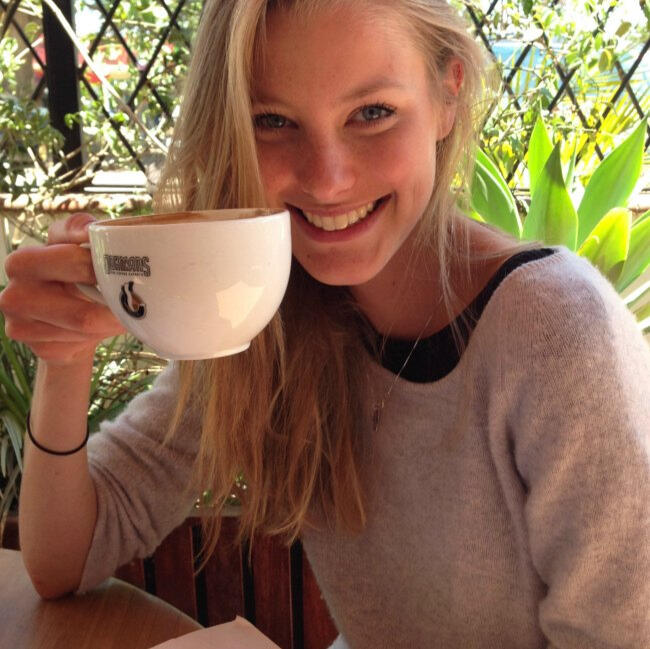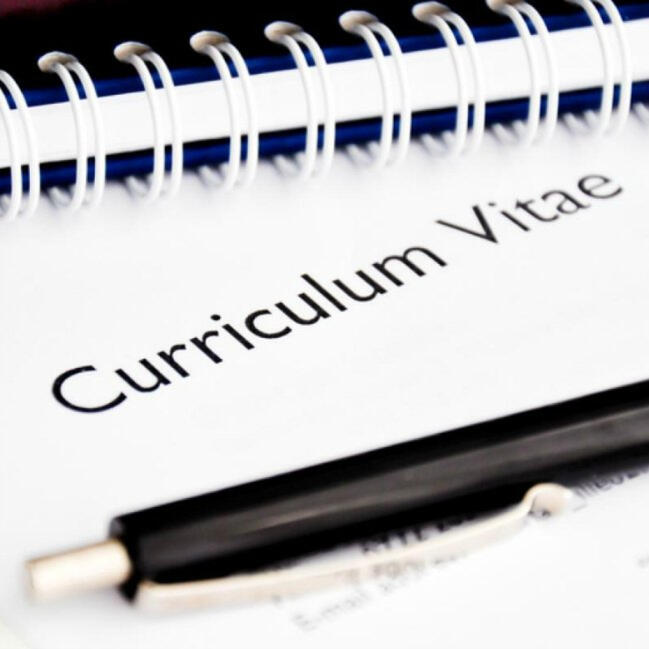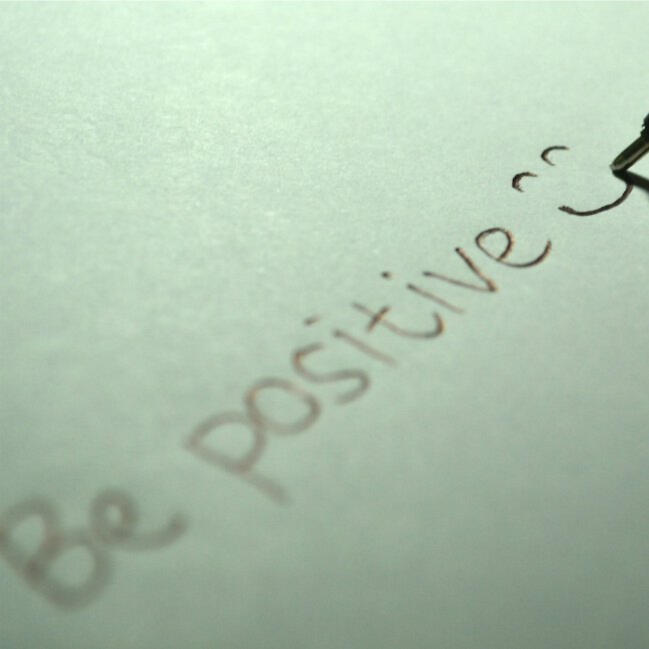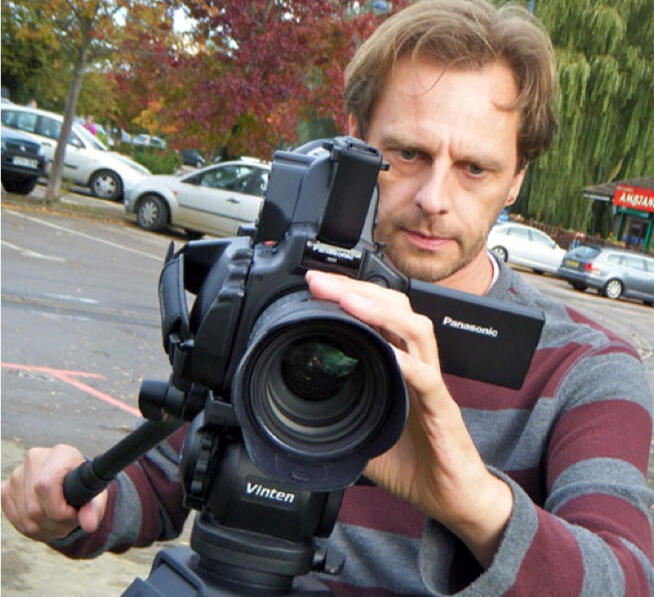Interview Coaching
Developing winning narratives and techniques for job interviews
HOW I CAN HELP YOU
I offer interview coaching for graduates and young people early in their careers.After working for 10 years as a careers coach, I have developed an exceptional track record; helping clients develop narratives and interview techniques that deliver exciting job offers.I like to work with clients when they have secured an interview; this means we can work on a specific opportunity together; researching the job offer and tailoring interview narratives for a specific employer. Our mission is not only to deliver the target job, but also to give you life-skills that will be invaluable in the long-term.My programme involves either meeting in-person or online. I like to send you preparatory work to get you thinking before we meet. This also gives me time to research the opportunity and ensure that I can get inside the mind of your prospective employer. We then meet for one or two sessions, in total working together for 2-3 hours.I charge £350 for this programme. Bookings can be made on the spur of the moment, because that is often the way with job interviews!Do get in touch if you have further questions: teresa@teresaorange.comRead more about me
TESTIMONIALS
“Thank you for your guidance and imagination – I wouldn’t be starting this job without you!”
Management Accountant
“Thank you so (unbelieveably) much for all your help in preparing me for the interview. I am starting work this week in a role which is perfect.”
Trainee Lawyer
“Thank you so much for all your help. I definitely wouldn’t have been as confident in the interview without having practiced with you first. I am over the moon I’ve got the job.”
National Crime Agency Linguistic Analyst
“3 months into my new job and I am really enjoying it. You gave me the confidence I needed in the interviews and I will be forever grateful to you for this.”
Media Agency Account Manager
“I got the job, horray! Many thanks for your insight, support and encouragement.”
NHS Speech Therapist
“I just wanted to say a huge thank you for all your help as I certainly couldn’t have done it without you.”
Sports Marketing and Management
ONE TO ONE INTERVIEW PREPARATION
£350
Interview & Assessment Centre Coaching
• For graduates and young people early in their careers
• Individual coaching programme
• Tailor-made agenda
• Preparing for a specific interview
• Personal branding and CV development
About Teresa
Developing winning narratives and techniques for job interviews
My Approach
In my work preparing young people for interviews, I have developed an exceptional record. The majority of my clients succeed in the first interview after our session, or very shortly thereafter. They all feel so much more confident and ready to perform in the toughest of situations.I initially came to careers coaching from the creative industries, specifically from the world of brand development and qualitative research. This means I understand how to develop unique personal identities (personal brands), and how to give clients the confidence to succeed in competitive market places.
Topline Summary
Teresa worked as a strategic planner in advertising agencies Davidson Pearce and J. Walter Thompson. She launched as a freelance qualitative researcher in 1992 and started working as a careers coach in 2012.
She has written two books on new media and has contributed to Government policy in this area. As an entrepreneur she launched one of the first dotcoms in education and won DTI and Millennium Awards for the online service.
She qualified in Careers Management (MSc from London South Bank University with Distinction) in 2014. Initially graduating in biology/psychology (BSc from Exeter University).

Where it all started
I started my career in a small advertising agency called Crawford’s. At the time it was London’s oldest agency (in our portfolio we boasted a Victorian ad of Pears Soap – one of the very first consumer brands!) I was information officer – fielding requests from copywriters and chief executives.It wasn’t long before I realised, I was interested in the thinking behind the ads, so the obvious career path was to become an agency account planner. This led me to J. Walter Thompson where I directed initiatives on children’s brands. You have to be slightly mad to enjoy endless meetings discussing the competitive positioning of characters such as My Little Pony, Tony the Tiger and Snap Crackle and Pop!

Having established a reputation as a youth specialist, I launched as a freelance brand consultant and qualitative researcher. This gave me the license to write a couple of books about media parenting, and to launch an educational dotcom company in the early days of the Internet. We didn’t make a million – but felt proud to have won a couple of Government awards for pioneering new ways of learning.I now work as a careers coach, focusing on interview preparation. I also run career workshops at Business Schools and Universities. I feel lucky to be working with young people at the start of their careers – helping them craft their future stories.
“I had my interview the day after our session, and got the job offer the same day. I couldn’t have done it without you.”
Chartered Surveyor
“I’m pleased to tell you I’ve been offered the job. I just wanted to say a huge thank you as I certainly couldn’t have done it without you.”
Economist / Civil Servant
“I would like to thank you again for all your help with my UCAS application. I was informed last week that I now have a place on the course at Newcastle. I am certain that my goal of achieving this place would not have occurred had I not had your help!”
Agriculture Undergraduate
“Just a quick email to say thank you again for the interview preparation. It helped my confidence hugely and I actually enjoyed some of my interviews. In the end I received three job offers.”
Trainee Accountant
“I honestly haven’t stopped smiling since meeting you. I finally have a plan and something to work towards. This wouldn’t have been possible without your help.”
Photojournalist
“What I am really excited about is the learning that the students have clearly enjoyed as result of the project. The confidence building that has taken place. The skills development.”
Head of Careers, Russell Group University
Space for inspiration
TRAINING
Clinching the job
The interview process has become a long drawn out process for many graduate schemes. I recently saw a two-page flow chart from one of the leading management consultants explaining the different hurdles that graduate candidates have to negotiate. It goes without saying that you need to be well prepared for each step, anticipating what questions you are going to be asked, and allowing plenty of rehearsal time to raise your performance.Tips to help you raise your performance:When you are preparing for a first interview imagine that you are an investigative journalist researching the employer. What are the big market opportunities? Have they been in the news recently? What makes their culture different? Do they have a CSR agenda? What are their vulnerabilities? In other words, do all you can to be totally wised-up.Ensure you don’t forget to research the people who will be interviewing you. This means you may need to get their names from the HR team. What are their particular areas of interest? Have they written any noteworthy articles or blogs? What career pathway have they pursued? Then work out how you might incorporate their hot topics into the conversation.If you are going to an Assessment Centre ensure that you are thoroughly wised-up to the process, and that you have developed personal strategies for each activity. It is also important to practice the tests that you will be set (so check that you know which types of psychometric or aptitudes tests you will be given). Finally, if you have some obliging friends it can help to role-play the kind of scenarios that you might encounter.
For further ideas contact: teresa@teresaorange.com
CAREER PLANNING
Plotting your future
It’s the lucky graduates who have a clear sense of direction by the end of Uni. They may be the ones who always had an inkling of where they wanted to head, or may be they were just adept at juggling the demands of finals with making decisions on the careers front.
But there will be many of you who walk out of Uni feeling at sea. Perhaps you were totally focused on your academic journey, or perhaps you simply needed to step into a new time zone before you could look to the future. Whatever the reason, it’s important that you recognise that you are in good company.TIPS:If you can’t work out what you want to do, sometimes it’s best to start by exploring what you don’t want to do. This means probing deep into your own feelings, and asking yourself why some things don’t appeal. You can learn from those negative feelings, and take satisfaction in pushing the agenda forward by narrowing down the options.Explore pathways before thinking about specific jobs. Here the trick is to think five years from now. Imagine the career roles and lifestyles that you aspire to. Then brainstorm around the different routes to get there. It can be useful to visualise the different pathways on paper. Stick them up on the wall. Stand back and over the next week reflect on which route feels best.Get stuck into opportunities that come your way, rather than waiting for the dream job. It’s easy to be fussy if you have cruised through education, and have high expectations of yourself. But it’s worth getting going simply to keep your CV moving forward. Although you need to remember that it’s only worth starting at the bottom if you don’t intend to stay there!
For further ideas contact: teresa@teresaorange.com
approaching employers
Getting a foot through the door
Knowing how to reach out to potential employers can be very daunting when you are new to the game. As a generation, graduates today have to become particularly adept at hunting out their opportunities. Being good at networking and knocking on doors is going to be an important life-skill, and the sooner you craft your techniques the better.TIPS:Visualise a networking map. Think carefully how to use your contacts to maximise their worth. Who should you approach now? Who should you contact when you are further along their way? Are there friends of friends who could help? Friends of your parents? Don’t have any qualms about pulling strings – this is not the time or place to be PC.Be selective about the jobs you apply for. Always better to do a handful of applications well, rather than hundreds of applications superficially. It is easy to become blinded by all the jobs that are advertised through the graduate job sites; so develop a personal set of job search criteria and a strategy to prioritise action.Knock on doors multiple times. When I talk to graduates who have succeeded they often recount that they had a breakthrough on the second, third or fourth attempt. It is easy to feel that all is lost if the first email doesn’t deliver an interview. Or if you don’t succeed with the first applications. In fact, it’s often through repeat approaches that the door eventually opens.
For further ideas contact: teresa@teresaorange.com
know yourself
Develop your personal brand
In a world of social media you will be used to the concept of personal branding. You craft an image of who you are through Facebook and Twitter. As a generation you have led the way, and now as you enter the world of work you need to consider how your social image complements a new career-self. In other words, you need to think about what kind of brand character you want to project.
You may have had a psychometric test in the past, but the development of brand integrity depends on a much deeper understanding. It starts through exploring the complexities of what makes you unique, and then building on your strengths to craft a distinctive persona for the workplace.TIPS:Being true to who you are may sound like a cliché, but it is a good starting point for building a personal brand. What makes you individual? Which dimension of yourself do you want to develop in your career? These are searching questions, so ideally you should address them with a good mate over a bottle of wine. In other words, you need to get intimate with yourself and try to encapsulate what makes you uniquely human.As a good strategist, it’s important to understand the desires of you target audience. So understanding the requirements of future employers is also an important starting point. Shut your eyes and pretend you are standing in the shoes of the recruiter. What are they looking for? How do they want candidates to stand out? What kind of CVs do they instinctively bin?Consistency of communication is always key to a successful campaign. Draw a schematic map of all your different channels of communication, for instance, Facebook, Linkedin, CV, cover letters, interview narratives, etc. Review the contents of everything and double-check that the emerging storyline leads in one clear direction.
For further ideas contact: teresa@teresaorange.com
IN WORDS
Enhancing your CV
Of course you will be very familiar with CV basics. I suspect you wrote your first CV before sixth form, and it would be hard to complete a degree without having attended at least one CV workshop offered by the careers department. So at this stage, the focus should be on CV enhancement and how the document can work more effectively for the workplace.TIPS:Review general impressions before thinking detail. Does your CV communicate a key message? Does it project the vitality of your character? Does it communicate the personality that you want to establish? Does it feel fresh and give value to what you are doing now? Remember it’s so important that a CV appears to be moving forwards even if you’re not in a graduate job.Make it specific to the job you are applying to. Does it feel right for the sector? Does it highlight the experience that is particularly relevant to the job specification? How does it work with your cover letter? Have you established why you are interested in them, as well as why they should be interested in you?Finally consider the details. How are your general themes supported by examples? Are the examples sufficiently memorable? Remember any communication has to entertain if it is going to leave a lasting impression. And of course, triple check there are no mistakes!
For further ideas contact: teresa@teresaorange.com
KEEPING POSITIVE
Be resilient
It’s so important to develop resilience during the job searching process. We all know how easy it is for rejections to knock our confidence, and job searching can feel very solitary after the buzz of Uni. As a student you had a clear identity, and a reason why. Suddenly you are hunting for a new role in life, and that poses fundamental questions about who you are.TIPS:Understand that there is an element of luck in every career move. This simple fact of life is central to my favourite theory of career development. It is called the theory of Planned Happenstance; and it suggests that hunting for a job is about playing luck to our advantage. That means seizing opportunities when they come our way, and being philosophical about the role that luck plays.Don’t expect too much too soon. It can sometimes take a year or two to find the right REAL graduate job (one that properly uses your intelligence!). Give yourself space and time to find that opportunity. A panic move into something that feels wrong can take time to put right. But on the other hand, don’t be frightened about starting at the bottom – as long as you know where you are heading.Have a life beyond the job search. Remember that employers are looking for interesting individuals – so that gives you the license to schedule enjoyment into the agenda!
For further ideas contact: teresa@teresaorange.com
Thoughts to inspire
blog posts by Teresa Orange

Using algorithms to connect with human beings

Clinch the job with mindfulness

Putting a positive spin on your narratives (and feelings!)

Professional associations: don’t worry about being a bit of a pest!

Big data changes the work place

The power of film for interview preparation

A bottom tip for Assessment Centre nerves

Psychometrics tests: to be or not to be truthful?

Timing a career re-launch in your twenties

“I got three job offers!”
Putting a positive spin on your narratives (and feelings!)
Posted by Teresa Orange on 8 February, 2019
Enhancing interview performance by digging deep
Some of my clients come to me after a series of disappointing interviews. They may have applied for jobs that they could have got, but somehow their interview performance kept letting them down. So it is my job to act as a detective, and to try and work out what has been going wrong.In many cases, I find that I can pinpoint their weak point by exploring the narratives of their CV. This involves me working in depth with my clients – just as a qualitative researcher would draw out the underlying perceptions and motivations of their respondents. I used to be a qualitative researcher before I turned career coach!Here are examples of some weak points that I have detected recently:An accountancy candidate who had all the academic cred to apply to the top four, but hadn’t worked out why he wanted to be an accountant.An operations candidate who had a dubious academic record (switched degrees and failed a year) but had all the talent to shine in the workplace.A marketing candidate who had been swanning around the ski slopes for a year after graduation, but who obviously had the flair and drive to succeed.A property candidate who had worked so hard to get her RICS endorsed Masters, but had no ambition beyond getting her foot in the door.So once I have found the weak point I need to explore how the narrative can be given a positive spin. And as an ex-advertiser (that’s where I started my career), I have no qualms about using my talents in salesmanship to the full!! Above all, this means giving my clients a new narrative that has integrity. Not only do I need to change the storyline, but I also need to change the way they feel about themselves.Which is what being an effective spin-doctor is all about!
For further ideas contact: teresa@teresaorange.com
Clinch the job with mindfulness
Posted by Teresa Orange on 8 February, 2019
A new book that will inspire you to be more laid-back in your interview preparation
“Just relax and be yourself!”I imagine that you have all heard those words before. A kind friend might have thrown them your way as you set off to an important interview. The problem is that it’s easier said than done. It takes a good bit of confidence to just relax and be yourself.In my work as a career’s coach I certainly observe how confidence has a transforming effect on my clients. A positive frame of mind enhances interview performance and convinces prospective employers that you are the right person for the job. So it makes sense to explore how you can develop a more confident mindset.One powerful approach is to be more mindful in your interview preparation. This means using relaxing meditative tools to rewire the way you think. Giving your mind the space to prepare for the toughest meetings. A mindful approach connects you with your own self-belief, and builds inner confidence that becomes part of your working identity.This is an approach that I often use with my clients, and I have recently published a collection of meditations that I have used with clients who have been applying to jobs over the last year. You might be applying to your first job, or aspiring to a more senior role. Whatever, your situation the meditations will help you be more relaxed in you preparation, and more confident in your performance.The book ‘Clinch the job: Mindfulness interview preparation’ by Teresa Orange is available on Amazon for £12.95, and the accompanying audios are free on Youtube.
For further ideas contact: teresa@teresaorange.com
Using algorithms to connect with human beings
Posted by Teresa Orange on 8 February, 2019
How to get past the computer when applying for a job
We all know that in order to get to an interview your CV, or application form often has to get past a computer. Increasingly there is no human involvement during the initial filter, other than the setting of the algorithms to decide on the key selection criteria. That can be a depressing thought when each application consumes so much of your time, and you fear that it might be put in the bin before anyone has taken a look.This horribly inhuman process is justified on grounds of practicality. Goldman Sachs site an occasion two years ago when they received a quarter of a million applications from students and graduates; and in the Economist they recently calculated that if a team of five Goldman HR staff, spent nearly five minutes on each application, it would take nearly a year to sift through this mammoth pile. No wonder they want to call on computers to help them.So how should you respond to this very daunting environment?The first step is to think carefully about what the algorithms will be looking for, and you will find many of these criteria in the job ad. But there will be other criteria that a firm will be less open about (for fears of being discriminatory). This may be a problem for applicants who did less well during their early years of education, and for example, those of you who pocketed a poor A Level result. No point spending hours filling in an application that is side-lined simply because you got a C in geography four years ago, despite you getting a degree first last year.A better solution is to use algorithms to your advantage. Use them as an excuse to pick up the phone and make human contact. Get through to the HR person responsible for the initial vetting. Find out about the computer procedure, and explore ways of getting around it. Above all, use the conversation to connect at a human level, and get them on your side. So that when they receive your application they hear your voice and but the algorithms to one side, and your application onto the right pile.
For further ideas contact: teresa@teresaorange.com
Professional associations: don’t worry about being a bit of a pest!
Posted by Teresa Orange on 6 February, 2017
Whatever field you are heading for, I bet there is a professional association that is ready to help you. I still belong to the organisation that helped me launch as a market researcher a good few years ago, The Market Research Society (MRS). This week they emailed me their new report on the industry: The ResearchLive Industry Report 2017. It makes brilliant reading for anyone trying to break into market research. It outlines news from the top agencies and lists the smaller agencies that are the ones to watch.Professional associations run courses, networking events and mentoring schemes that can be of invaluable help to jobseekers. The Association of Qualitative Researchers (AQR) is another of my favourite associations and they run brilliant evening events that help connect young people with leaders in the industry. Professional associations are great places to find out about the nitty gritty of the business. Before becoming a market researcher I worked in advertising, and when I was fresh from Uni knocking on doors, I spent a day in the library at the Institute of Practitioners in Advertising (IPA). I might have been a bit of a pest trying to pick up as much as I could but nonetheless they were incredibly helpful.Remember that professional organisations are there to help you. Don’t worry about being a bit of a pest. Sniff out what they have to offer. It is part of their remit to reach out to the next generation and to help attract the talent of tomorrow. Above all, use them to network so that you begin to feel at home in the industry before you have officially arrived!
For further ideas contact: teresa@teresaorange.com
Big data changes the work place
Posted by Teresa Orange on 6 February, 2017
This week I heard a brilliant lecture by Kenneth Cukier, the digital editor at the Economist, talking about Big Data. He was giving the Anthony Howitt Lecture at CIMA (The Chartered Institute of Management Accountants). The title was ‘Making Decisions Amongst The Data Deluge’, and Cukier painted a picture of a new landscape where every feature of our lives should be treated as a platform for the collection and analysis of data. Help, how Big Brotherly that sounds! Or, alternatively you could say it’s what market researchers have always been doing?!As an ex market researcher, I was interested in exactly how big data has really changed the way we make decisions. Cukier describes how it is the sheer quantity of data and new processing powers that have been the game changes, for instance, he estimates that the world-wide quantity of digital data doubles every three years. One important area of change in the work place is where machine-learning algorithms can now outperform human expertise. In the past the IQ of a robot was limited by the intelligence of the programmer; but with advancements in AI (Artificial Intelligence) this is no longer the case. Now computers learn for themselves, and they are often better learners than we are. As a consequence, Cukier suggested that it was time to invite machine-educated computers to the board table!Another example of how big data is changing decision-making is in the area of consumer insight. Apparently, big data analysts are increasingly revealing surprising correlations of consumer behaviour, and these totally unexpected findings are subsequently being used to drive marketing initiatives. For instance, data in the car market recently revealed that if you own an orange car you are less likely to have an accident; and as you can imagine I left the evening wondering why I hadn’t bought an Orange car before!
For further ideas contact: teresa@teresaorange.com
The power of film for interview preparation
Posted by Teresa Orange on 11 February, 2016
It is very revealing how helpful video interview coaching sessions can be. The thought of being filmed may feel daunting, but it can often be transforming as you prepare for an important interview. After conducting a videoed interview I analyse the film with the candidate. This allows us to focus on enhancing posture, mannerism and engagement. Little details such as the more effective use of eye contact can make a big difference. It can also help candidates improve their narratives – listening to yourself waffling is a most effective way of helping you sharpen up the dialogue. In addition, the presence of a camera is helpful as a way of emulating a touch of the stage – it prepares you for that moment when all eyes will be firmly focused on you.“Being filmed really helped my development and allowed me to be more critical of myself and realise how to prepare better for interviews. It helped my confidence hugely and I actually enjoyed some of my interviews. “ Graduate 2015
For further ideas contact: teresa@teresaorange.com
A bottom tip for Assessment Centre nerves
Posted by Teresa Orange on 7 May, 2016
I read this week that it was scientifically impossible to shake with nerves at the same time as tensing your bottom. A fact that strikes a chord with me because I used to be a high board diver, and I know well how a firm bottom gives you confidence as you stand petrified before plunging into a few somersaults.A client also reminded me this week of how important it is to control your nerves as you are scrutinized at Assessment Centres. He had just clinched a job after a series of disappointments, and he told me how he had tripped up a couple of times because of his shaky appearance. In fact one of the recruiters told him that he would have got the job if he hadn’t looked so terrified when he got up to present.The break-through for this client came when he was given a week to prepare for a very analytical presentation – rather than simply being asked to give the rather inane talk about himself. He had time to out-class the competition through his rigorous preparation, and on the day he had too much on his mind to worry about nerves.So in the end it was his outstanding preparation that got the better of his nerves and got him the job. Nonetheless, it’s always good to have a few tricks up your sleeve in case your nerves suddenly get the upper hand. And for those of you who might feel timid about divers’ bottoms – there are plenty of other top tips from the world of sport such as deep breathing, finger clenching, neck rolling and shoulder circling! Just work out a routine that feels right for you!
For further ideas contact: teresa@teresaorange.com
Psychometrics tests: to be or not to be truthful?
Posted by Teresa Orange on 25 April, 2016
To mark Shakespeare’s big birthday I thought I would question the very nature of our being! A task that many graduates have to face every time they complete an online job application form.Psychometric tests are what we call personality tests. They are different from aptitude tests that evaluate your competency in specific areas such as numeracy and critical thinking. Psychometric tests are about your sense of being.Probing on personality via a short online questionnaire is a challenge. Knowing how to respond to these tortuous questionnaires is even more challenging. When you are presented with a battery of fictitious scenarios it is so difficult knowing what to say.My advice is to simply answer the questions intelligently. Do your homework beforehand and identify the kind of person that you think the company wants to recruit, and spend time before you go online exploring the kind of person you want to be.But what about the truth? The problem is that our sense of being is more complex than can be summarized through a few simplistic multiple-choice statements. We have multiple identities and as a graduate applying for a job you should be enjoying a period of reinvention. This is one moment in your life when you have the prerogative to define who you want to be.A graduate recently told me how he had failed to get an interview after completing the psychometric test for one of the top four accountancy firms. He had focused on being honest. A few months later he reapplied. This time he thought strategically – thinking about the kind of person they wanted to recruit and the kind of person he wanted to be. He got the got the job.A final ode to Shakespeare: all the world’s a stage – when it comes to job hunting … but just check you are happy with the role you choose to play!
For further ideas contact: teresa@teresaorange.com
Timing a career re-launch in your twenties
Posted by Teresa Orange on 3 October, 2016
I meet a lot of graduates in their twenties who are looking for a career re-launch. May be they feel trapped in the wrong career. Or may be they simply feel that their career never took-off.For those who feel trapped in the wrong career it is important to think of timing as well as career direction. You may be in an enviable graduate role but simply feel uncomfortable about the long-term. In which case ensure that you maximize the potential of your current position before you consider entering the job market. Recruiters are more interested in individuals who are moving forward, so even if you feel uncertain about the future, check that you are pushing the agenda forward in your current position.For those of you who feel that your career never took-off it is important not to feel trapped by the passage of time. May be you have spent time on a Masters. Or may be your were unlucky not to clinch any of the graduate schemes. For whatever reason, you may feel that you have been treading water on the career front. Earning a living rather than using your talents as a graduate. In your case it is crucial to put time in perspective. Everyone treads water at one stage in their career – even the Richard Branson’s of the world have fallow years from time to time.Above all, you should all remember that in your twenties – everything is still possible. We live in an age of flexible career pathways. Most of us will reinvent ourselves a few times during the course of our working lives. So don’t panic if you are looking for a change of direction at this early life-stage. Time is on your side.
For further ideas contact: teresa@teresaorange.com
“I got three job offers!”
Posted by Teresa Orange on 23 February, 2016
One of the delights of being a careers coach is hearing good news from graduates you have helped. So I was particularly thrilled this week to hear from a client who clinched his target job at PwC as well as netting two other offers. Yippee!! But as in many cases it took a little time for the offers to materialize. I, like my clients, have to be patient. Perfecting your interview narratives can take time. The important thing is to learn from every application, and not to hesitate to keep knocking on the same doors. One graduate I recently helped got the ship broking job he was targeting after six months of courting (or pestering!) the HR team!“Just to let you know that I was successful at PwC and will be starting there in September! Receiving personalised feedback helped my confidence hugely and made me realise how to prepare better for interviews. In the end I received three job offers and am extremely grateful for all your help.”
For further ideas contact: teresa@teresaorange.com
Contact
We would like to hear from you. Please send us a message by filling out the form below and we will get back to you shortly.












